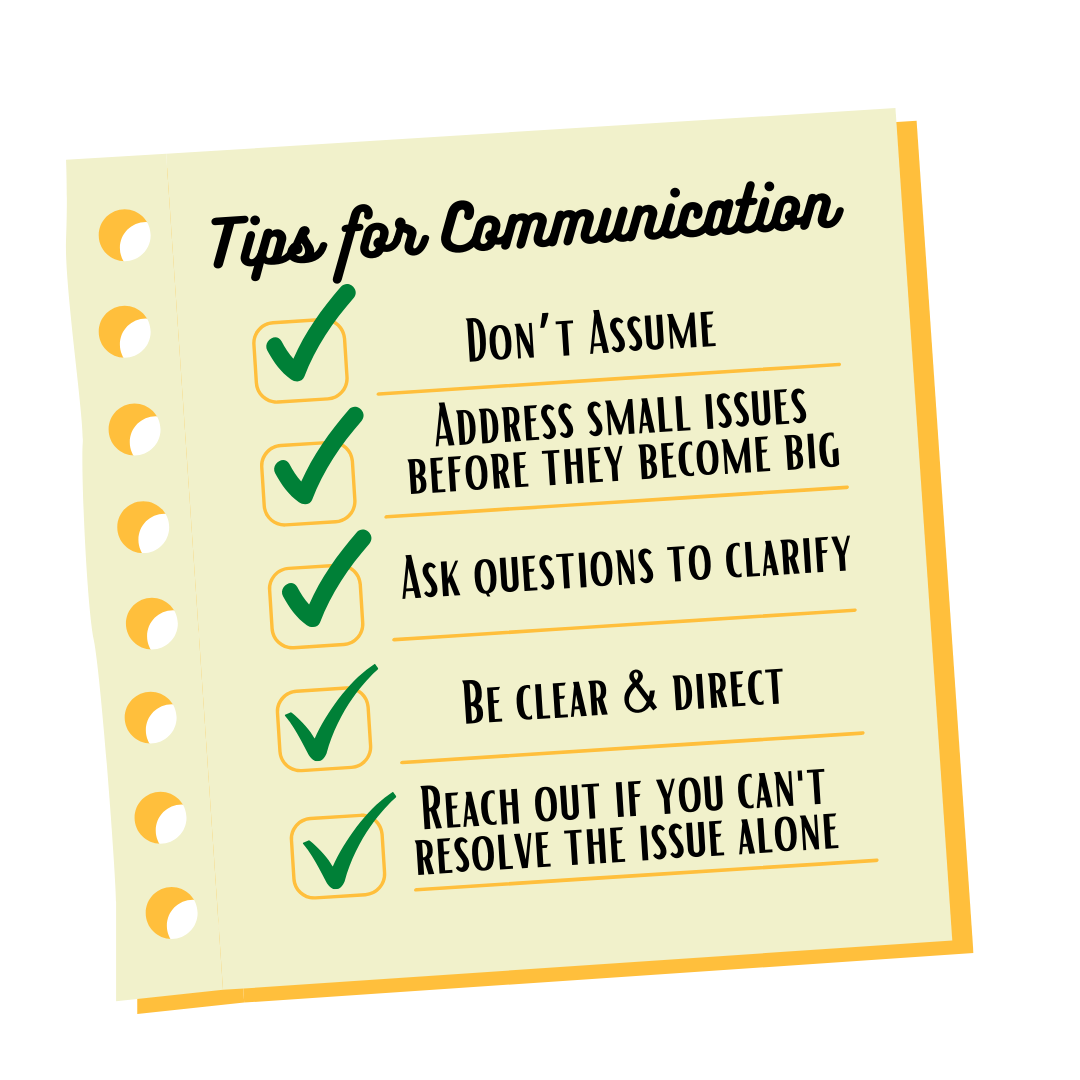
It is important to understand and discuss boundaries early on with the people you’ll be living with. While you may not become best friends, you should have a respectful relationship with one another. Below are some tips to build a civil relationship with your room/suite/housemates as well as resources to help get the conversation started.
Roommate Agreement Form:
Interests and Background: What music do they listen to? What shows do they watch, or hobbies do they have? Do they have preferred pronouns or any allergies?
Responsibilities: Discuss shared responsibilities such as cleaning the bathroom and taking out the trash. Making a calendar or list can be helpful in setting a routine and holding each other accountable.
Personal Items: What personal items are off-limits? What items can be shared? Can guests use those items? How do you feel about sharing clothes/shoes?
Emotions: How do you express your emotions? How do you act when sad, angry, or stressed? What do you do to cheer up?
Quiet Hours: What hours and days should be set aside for study time? Is low background music allowed while studying? At what time do you expect to sleep and wake up? Do you take naps? If yes, when?
Agree on Guests: What times are best for guest visits and are guests allowed to stay overnight? How many guests may you have at a time? Are guests allowed to remove facial coverings? Acknowledge that you're responsible for your guest(s) behavior.
How to Approach Conflict: Through notes? Face-to-Face speaking? On-campus residents, would you like the RA to be there for mediation? If off-campus, would you like a neutral third-party mediator?
To Resolve a Conflict be willing to VOCAB:
Vulnerability: Be willing to be seen, heard, and understood
Ownership: Take accountability of how your choices and actions have led you to this point
Communication: Ask questions to understand, practice active listening
Acceptance: Embrace reality & let go of what is out of your control
Boundaries: Ground rules for acceptable behavior, no is the foundation of trust
Be mindful that you’ll disagree with others and will be asked difficult questions
Keep an open mind and be willing to consider various options to find a resolution
Try to understand others’ emotions and points of view even when you think they are wrong
Listen carefully to what the other person is saying, find common ground
Treat one another respectfully
Solving conflict isn’t about winning, it’s about finding a satisfactory solution






